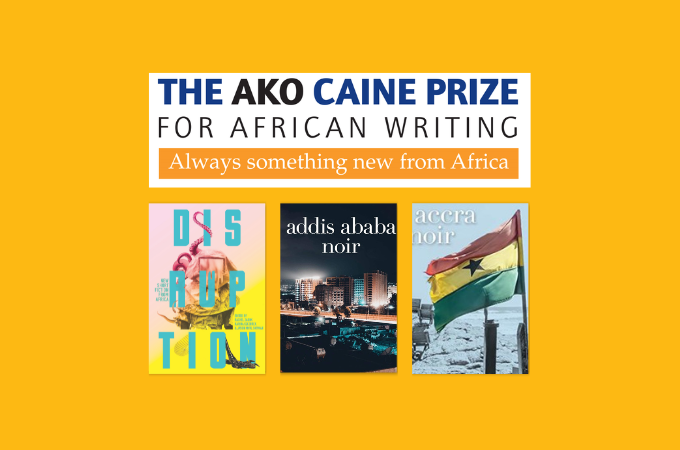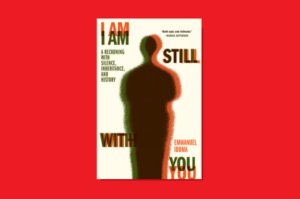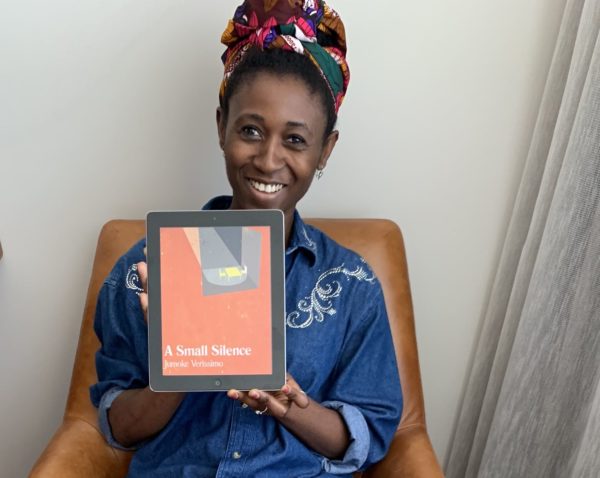
I read the five 2022 AKO Caine Prize shortlisted stories on Saturday June 11th, and I was awed, once again, at the amount of fierce creative talent there is in Africa. We have here brilliant stories in their own rights. The stories excelled in the crafting of their words and in the depth of their stories and language. They mirrored real, contemporary issues, touching real, relatable people. The five stories triumphed in their individual spaces. They cast a shining light on the burgeoning promise African literature holds, and moreso, the incredible work African literary magazines are doing in fostering these voices. Chair of Judges, Okey Ndibe, notes the “vibrancy, variety and splendour” replete in African literature today. Truly, the shortlisted stories are vibrant!
For the very first time since the Prize started in 2000, all five selected stories were culled from published compilations. The anthologies this year were published between the years 2020 and 2021. The closest shave to this was in the 2001 shortlist where, from the five shortlisted writers, three (Mia Couto, Nurrudin Farah, and Lillia Momple) were selected from the 2000 edition of The Picador Book of African Stories. With this move, however coincidental, things are looking great for African anthologies, and we expect to see more of them springing up in the coming years.
Interestingly, too, the 2022 shortlist, which pays homage to four women and a man, features three stories from the -Noir series — two (Danquah and McTernan) from the 2021 edition of Accra Noir, and one (Giorgis) from the 2020 Addis Ababa Noir, with the 2020 editor of Accra Noir, Nana-Ama Danquah, making it to the list.
Each story in the 2022 shortlist is impressive in isolation, in the context of a shortlist where they are in, and from which they would be judged. In “A Double-Edged Inheritance,” the young protagonist, Meskerem, discovers, years after her mother’s death, and after the recent death of her caretaker, some truths about her estranged soldier father. However, the events leading to the end of the story is shed in dull light, and there is difficulty coming to a full understanding of the resolution. I would classify the story as the weakest link in this year’s shortlist, similar to what I concluded “This Little Light of Mine” by Troy Onyango to be in the 2021 shortlist. While strong on its own, Giorgis’ work seemed acutely disjointed in many places, and lacked coherence, ultimately. Scenes were jumped, and it was hard to put a fine hand on motivation in the story. Amongst other critical flaws, the writer gave little to no motivation for the characters’ actions. The ending was quite weak, too. I was in a hard place situating almost everything in the work.
The other four stories hit good marks in style, language, depth, progression, abundance of relevant themes, and overrall structural brilliance. Chibusonma in Joshua Chizoma’s “Collector of Memories” is not new to many readers. A “stolen” child is rescued and bred to adulthood, only to be informed by their caregiver the true identity of their parent. A curse has to be lifted to free the penitent rescuer. The story, however, is fresh. Chizoma tells a convincing story in such fluid, relatable language. The writer wins for his subtlety, his telling without exactly doing so, his mastery of words, and in his portrayal of the complex phenomenon of humans and human sexuality. Talk about pegging!
When Kwame suspects that Adwoa, his wife of many years, is having an affair with his best friend, he takes the only path that opens itself to him. Nana-Ama Danquah’s “When a Man Loves a Woman,” set in post-colonial Ghana, tells a story of love, of betrayal, and vengeance. Danquah’s style is elegant and brusque at the same time. It interrogates that primordial quality seen only when the walls of trust cracks.
Billie McTernan’s “The Labadi Sunshine Bar” starts, rather appropriately, with the dumpster close to the Korle Lagoon which marks the unexpected end of Madam Joana, owner of the Labadi Sunshine Bar, prostitute-handler, and the story’s matyr. Priscilla is representative of the many young women, trafficked or not, who end up in whore brothels in Labadi. The events that happen in such places as Labadi beach are fast-paced, brutal, and gruesome as the ending of the story. McTernan told an impressive story with aplomb, skidding the temptation to be documentarian, a pitfall stories such as hers usually suffer from.
Idza Luhumyo’s “Five Years Next Sunday” veers from the other stories in two major areas. The first is its hyper-theme which took a metaphysical leaning, and the second is its immense depth of style and language. After reading each of the stories, there was (what I believe should be) the obvious gap between this and other works. The feeling I got after reading this story was the same when I read Rémy Ngamije’s “Giver of Nicknames,” and Meron Hadero’s “The Street Sweep,” two short stories from the 2021 shortlist that were undisputedly outstanding from the lot, a worthy duo to compete for the prestigious prize. Meron Hadero’s win was, therefore, no surprise. Luhumyo’s work, only beating, by an inch or two, Joshua Chizoma’s “Collector of Memories,” shone in every aspect art of that kind is meant to shine. Luhumyo’s story is biting, rich, full, and bubbling. These bubbles carry you on waves and take you to the finish line. And she does this in a flourish. Luhumyo’s story wrote itself. The writing seems effortless, as though written with the wind. A powerful story, indeed; my bet for this year’s prize.
As we await the winner of the 2022 AKO Caine Prize for African writing to be announced in the coming weeks, I wish the shortlisted writers the best of luck. May the best writer win!








Abdullahi Ali June 21, 2022 11:32
Luhumyo's "Five Years Next Sunday," would win the prize. I bet, because the story addresses Climate change, in a simple way.